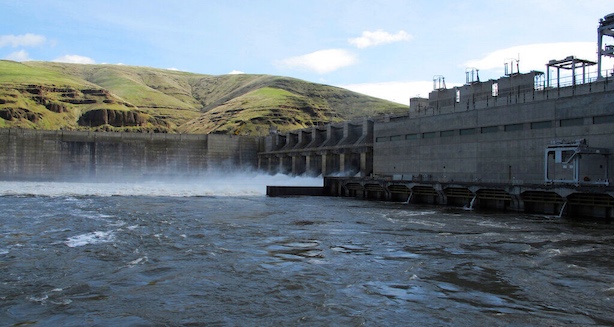forum
library
tutorial
contact

Spokane Councilors Delay Vote on Snake River
Dam Removal to Meet with Tribes
by RaeLynn Ricarte
The Center Square, December 9, 2022
|
the film forum library tutorial contact |

|
Spokane Councilors Delay Vote on Snake River
by RaeLynn Ricarte
|
"If we support the removal of some dams,
it opens the door for removal of other productive dams."
-- Spokane City Councilors Jonathan Bingle
 Spokane City Councilors Jonathan Bingle and Michael Cathcart have postponed the vote on a resolution voicing opposition to the removal of four lower Snake River dams to further explore issues raised by tribal leaders.
Spokane City Councilors Jonathan Bingle and Michael Cathcart have postponed the vote on a resolution voicing opposition to the removal of four lower Snake River dams to further explore issues raised by tribal leaders.
"I met recently with the Spokane tribe to hear their concerns and discuss areas of common ground," Bingle told The Center Square this week. "I wanted to defer consideration of the resolution so we could continue that conversation."
Even though the Snake River dams lie outside the city's jurisdiction, he and Cathcart believe the effects of breaching them will be felt by all residents of the state and beyond.
"More than 50% of the energy produced by Spokane is hydropower, so this is really a philosophical discussion," said Bingle. "If we support the removal of some dams, it opens the door for removal of other productive dams."
Although a resolution is not legally binding and intended only to express the sentiments of the government body, Bingle said having Spokane add its voice to other communities in opposition to dam removal carries political weight.
He said the Dec. 1 meeting with the Spokane Tribe of Indians was enlightening. They raised concerns about some issues that he had not previously known, such as exposure of ancient burial grounds when water elevation changes along the Snake River due to hydropower activity.
Bingle is aware that tribes across the Northwest are advocating for removal of the four dams from Ice Harbor near the Tri-Cities upriver to Lower Granite Dam near Lewiston, Idaho, to protect endangered fish runs.
He is undaunted by that fact. At the end of the day, Bingle believes that all residents of the state are aware of the high stakes of dam removal and concerned about the potential consequences of lost electricity production during an energy crisis. They are also concerned that the river serves as the largest wheat export corridor in the nation, as well as a navigable channel for other agricultural products.
Bingle said cost estimates to remove the dams and replace the services they provide range from $11 billion to $77 billion, with a congressional plan that costs $33 billion.
"When you put the costs into perspective, it is staggering," he said.
By comparison, Bingle said the estimated cost to level and rebuild Spokane, the second largest city in the state with nearly 230,000 people, would be about $26 billion.
He said energy production would be adversely affected by dam removal because alternative energy sources, such as wind and solar, are not dependable.
Bingle and Cathcart claim in their proposed resolution that dam removal would have "irreversible effects on the life, health, and prosperity" of residents in the Pacific Northwest and beyond.
Related Pages:
Spokane Councilors Assail 'Unsustainable' Dam Removal Plan by RaeLynn Ricarte, Big Country News, 11/7/22
Spokane City Councilman Bingle's Dam Resolution Runs into a Wall of Resistance - For Now at Least by Colin Tiernan, Spokesman-Review, 11/8/22
learn more on topics covered in the film
see the video
read the script
learn the songs
discussion forum
